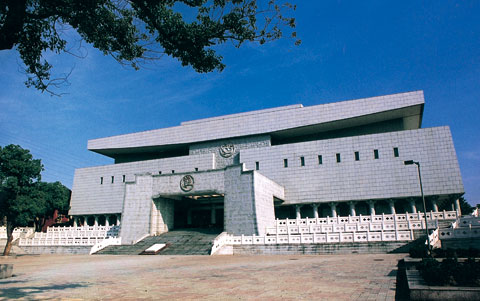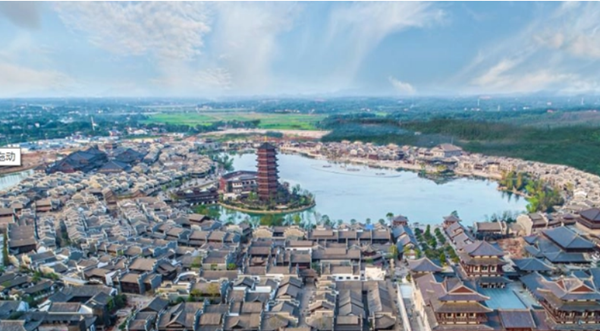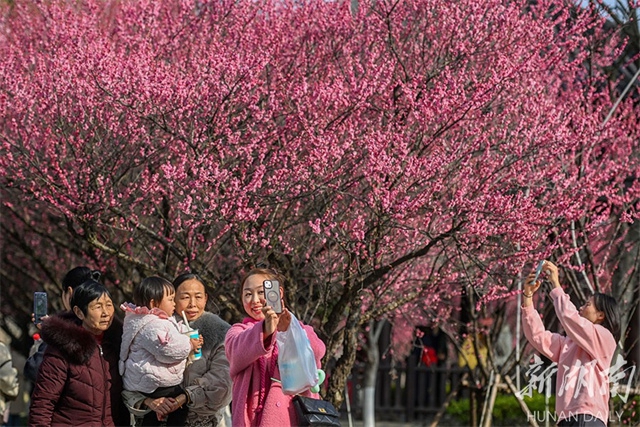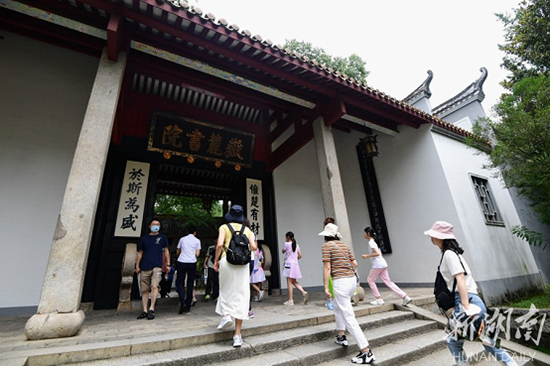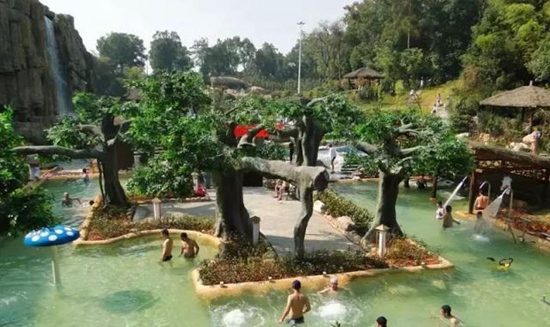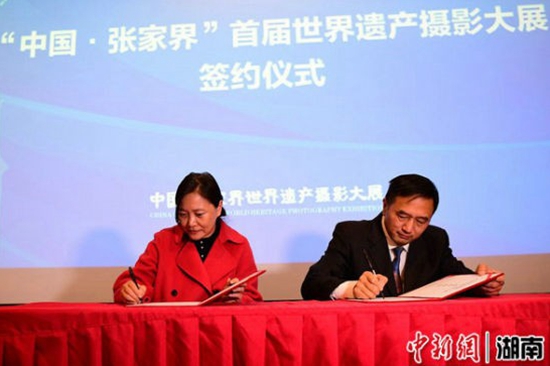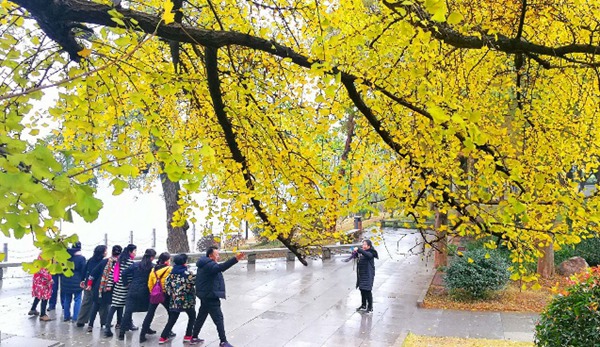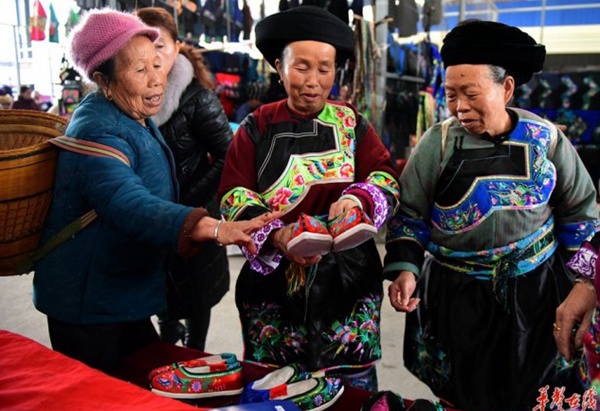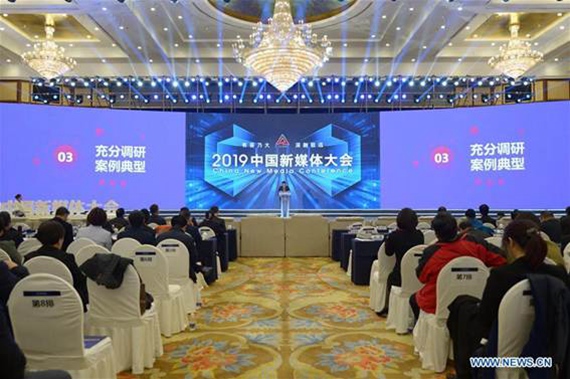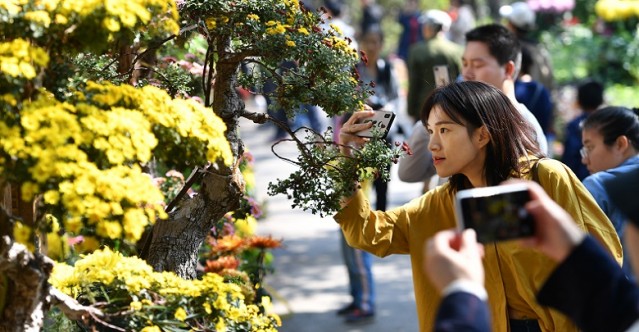Hunan Provincial Museum, the largest museum of history and art in Hunan Province, was set up in the early 1950s. It lies in the Kaifu District of Changsha with an area of 51,000 square meters. The museum boasts abundant collections that feature cultural relics excavated from the marvelous Mawangdui Han Tombs, including the bronze wares of the Shang and Zhou Dynasties and the Kingdom of Chu, pottery and porcelain works in the past dynasties, calligraphy works and paintings, as well as modern cultural relics.
The new exhibition building of Hunan Provincial Museum is simple in form but marked for its magnificent grandeur. The multi-functional and well equipped building shows six permanent exhibitions and many temporary exhibitions.
The Exhibition of Han Tombs at Mawangdui
The excavation from 1972 to 1974 of three tombs of the Western Han dynasty at Mawangdui in Changsha marks one of the major archaeological discoveries in the twentieth century. Over 3,000 cultural relics and a well-preserved female corpse were unearthed.
Among the uncovered relics are bright-colored lacquer wares representing the highest level of workmanship at that time, fine silks amazingly showing accomplished weaving technique, silk paintings with romantic themes of the Kingdom of Heaven, the craving for eternity, and silk inscriptions demonstrating knowledge and wisdom of the ancient people. The well-preserved female corpse is even a miracle in human antisepsis.
The Exhibition of Shang and Zhou Bronzes found in Hunan Province
The earliest bronzes that have been found in Hunan Province were excavated from several Shang Dynasty sites (over 3,500 years ago) in Tonggushan of Yueyang City and Zaoshi of Shimen County. The Museum has a fairly large collection of bronzes of the Shang and Zhou Dynasties. The Exhibition of Shang and Zhou Bronzes found in Hunan Province displays 72 carefully selected bronzes and 11 jade objects unearthed together with the bronzes. This exhibition reflects the sequence of development of bronze culture in Hunan Province, and offers knowledge of the bronze Nao (a kind of musical instrument) and animal-shaped bronze utensils, and enriches the connotation of China's bronze culture.
The Exhibition of Ceramics from Famous Kilns in Hunan Province
The ceramics industry in Hunan Province has obtained a unique position after a long history of development. The ten-thousand-year old pottery shards unearthed at Yuchanyan in Dao County are among the earliest ever-discovered in China. More than 400 kilns chronologically ranging from the Eastern Han Dynasty (206BC -23AD) to the Qing Dynasty (1636-1912) have been discovered in Hunan Province. The brilliantly colorful ceramic art of Hunan has added a bright vista to ancient ceramics in China.
The Exhibition of Calligraphies in the Ming and Qing Dynasties
Calligraphy in China is an old and unique traditional art. Chinese calligraphy is based on Chinese written characters and gradually develops into a most concentrated aesthetic form of art that provides an understanding of the Chinese culture.
There are a large collection of calligraphy works of the Ming and Qing Dynasties (1368-1912) in the museum, especially the works of celebrities from Hunan Province, which show the elegant and distinct demeanor of Hunan calligraphy. The displayed collection of the Ming and Qing Dynasties epitomizes the continuation, innovation and development of calligraphy in Hunan Province along with the other parts of China.
The Exhibition of Paintings Created in the Ming and Qing Dynasties
The history of Chinese painting art runs a long course from a remote source with its unique national style and profound cultural information. Based on the development of the painting art in the Tang and the Song Dynasties (618AD-1279AD), the painting art of the Ming and the Qing Dynasties has a tendency of individuation, and, therefore, various schools of paintings with different styles have appeared. There is a large collection of paintings of the Ming and the Qing Dynasties in this exhibition. Among them, there are works of painters that have never been shown anywhere else in the country, which show the basic development of the painting art and the artistic style of Ming and Qing Dynasties.
The Exhibition of Ten New Major Archaeological Discoveries in Hunan Province
The Exhibition of Ten New Major Archaeological Discoveries in Hunan Province with 133 artifacts shows the ten new great archaeological discoveries in Hunan Province over the past ten years, among which, eight have been included in Annual Ten New Major Archaeological Discoveries in China and three have been included in the Hundred Greatest Archaeological Discoveries of the Twentieth Century in China. Furthermore, the excavation of an ancient city site from the Warring States (475BC-221BC) to the Qin(221BC-206BC)and Han (206BC-220AD) Dynasties in Liye of Longshan County has been regarded as one of the greatest archaeological discoveries of the twenty-first century in China. This exhibition shows rich and various aspects of artifacts, including quantity, variety, form, cultural meaning, historical and scientific value and so on.
There are also many national treasures displayed here, which include Coffin with Painted Design on Black Lacquer Coating,which, though has been buried for more than two thousand years, still shines in dazzling colors; the Tang Dynasty Copy of "Lan Ting Xu" (the Brown Silk Paper Scroll), which enables us to know the style of early Tang Dynasty calligraphy while appreciating the artistic beauty of Wang Xizhi's calligraphy; the T-shaped Painting on Silk; the Gauze Gown as well as the Square Bronze Ding with Human Mask Design and Inscriptions of da he.
With a concentration of treasures of cultural relics from the land of Hunan Province, Hunan Provincial Museum paints a panoramic historical picture of Hunan civilization. Serving as an important window to interpret the history and nuances of Hunan culture, it attracts every year hundreds of thousands of visitors from China and abroad.
Admission: free (not open on Monday)
Opening hours: 8:00am-17:45
Tel: (86)731-4535566
Transport: Bus Nos.112 and 136
